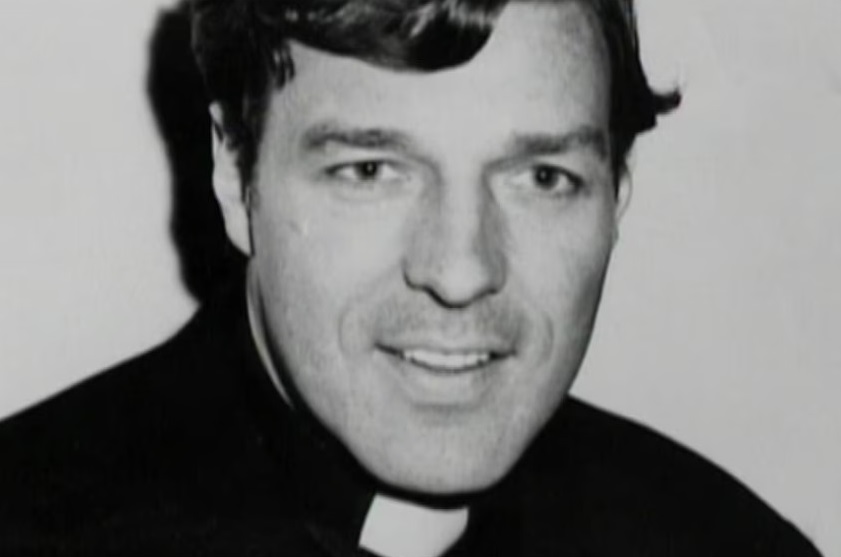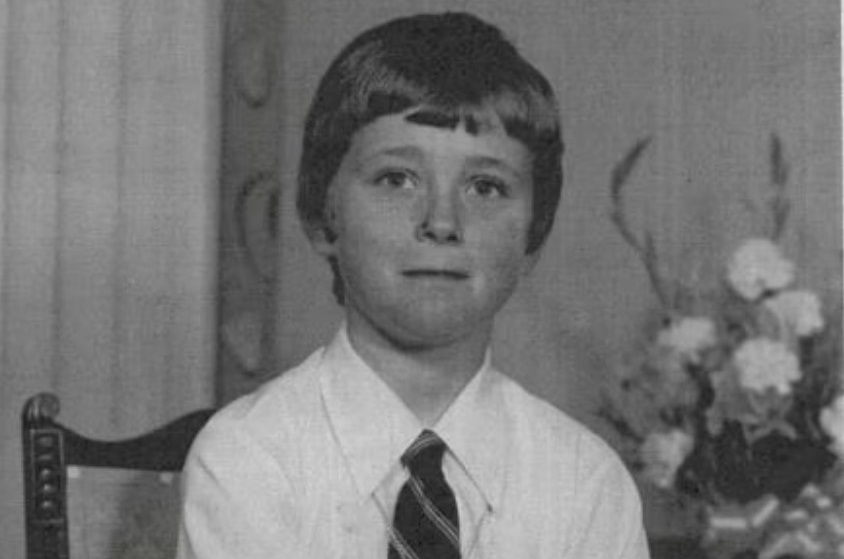(AUSTRALIA)
Australian Broadcasting Corporation - ABC [Sydney, Australia]
January 30, 2025
By Louise Milligan and Charlotte King
[Photo above: James was 9 when George Pell abused him, the scheme found. (Supplied)]
In short
Two men were compensated after the National Redress Scheme accepted they were abused as boys by the late Cardinal George Pell in Ballarat in the 1970s.
One man who the scheme decided was groped by Pell was compensated just five weeks before the cardinal’s death.
Two men have been granted compensation by the federal government’s National Redress Scheme for abuse by the late Cardinal George Pell, including one whom the scheme accepted was raped by Pell when the Cardinal was a young priest in Ballarat in the 1970s.
The boys were eight and nine and lived in Ballarat when the abuse they describe in their claims took place, but do not know each other and went to different schools in the Victorian goldfields town where Pell was a priest and the diocese’s episcopal vicar for education.
It can be revealed for the first time that in one case, the scheme accepted the boy was groped on the genitals by Pell during a game at a swimming pool in the town. In the other, the decision-maker accepted that the boy was anally raped in a school gymnasium.
The groping victim received his offer of compensation for the abuse five weeks before George Pell died in January 2023 — the diocese of Ballarat was informed of the decision at that time as the scheme requires the institution responsible for the perpetrator to pay the redress amount.
While criminal cases have a standard of proof of beyond reasonable doubt, the scheme’s standard is that the abuse was “reasonably likely”.
Bishop Paul Bird of Ballarat would not comment on the cases because he says regulations prohibit him from discussing them, but the redress decision says the diocese disputed the men’s accounts.
The men spoke as part of a large investigation for The Monthly magazine, along with other complainants against George Pell who have never spoken publicly before.

‘I thought he was going to whip me’
James, a retired chef, recalls he was about nine years old in Year 4 at Ballarat’s St Francis Xavier Primary School, known locally as “Villa Maria”, when he stole a cardigan belonging to Pell, who coached the school’s football team.
In his complaint to the scheme he says Pell chased him into the school’s gymnasium, which was empty, and put him on a small trampoline.
“I remember him saying ‘Pull your pants down’,” James wrote.
“I thought he was going to whip me with his belt. He didn’t.”
What he did do, the scheme’s decision maker accepted, was far more disturbing.
“He put something in my ass — I presume it was his penis,” James wrote.
“It was very painful. I was bleeding from my bottom afterward.”
James was too ashamed to tell his mother, Carmel, for 50 years, until he came forward in 2024 to the National Redress Scheme after having sought legal advice.
He told the Redress Scheme that he was “scared that people won’t believe me”.
“I am just tortured by the fact that for 50 years, he’d lived alone with that horror,” Carmel, a once-staunch Catholic who has been an advocate for victims of clergy abuse in the Ballarat diocese, says, tearfully.
“And I’m just so grateful that he is who he is, because I love him dearly.”
James was granted $95,000 in compensation from the scheme, which is capped at $150,000, and none of his account was disputed by the decision-maker.
The decision-maker stated that part of the reason they accepted James’s account was that there were two other complainants from his school (who have never gone public) who also made accusations about Pell abusing them, which the diocese of Ballarat had also not accepted.
Behaviour ‘contrary to community standards’
David, who is using a pseudonym because he is employed as a high school mathematics teacher, was in year 3 at Ballarat’s St Patrick’s Primary School, which is known locally as “Drummo”, when the decision-maker found Pell grabbed his genitals to throw him in the air.
David’s statement said Pell would lift him “with his hand at the front of my crotch — essentially grabbing my genitals and throw me that way”.
He said that “the whole manoeuvre was pretty dodgy in the extreme” and it made him feel “uncomfortable”.
Notably, it is a manoeuvre that has been described by multiple other men who made complaints about Pell abusing them.
“It was (and is) preposterous to think that there was anyone that I could go to and ask is it OK for George to place his hand on my genitals,” David wrote.
“I did not even have the language to pose such a question never mind a person to pose it to.”
David was granted $45,000 by the scheme for abuse by Pell and a Christian Brother in Ballarat, with the decision-maker saying while David’s memories of something that happened 50 years ago were understandably “sketchy”, he appeared “candid and not exaggerated” and he was “psychologically uncomfortable being grabbed”.
The finding said “children could be thrown without touching genitals (holding under arms or feet)”, it was “not incidental touching” and it was contrary to community standards of the time.
As in James’ case, the decision maker referred to other claims of activity by Pell, although the decision letter redacts the details of those complaints.
‘Celebration of Pell painful’
The Catholic Church supported the introduction of the National Redress Scheme, with the Australian Catholic Bishops Conference president, Brisbane’s Archbishop Mark Coleridge, saying the church was “keen to participate in it”.
The Bishop of Ballarat, Paul Bird, confirmed that he was one of the 275 priests who attended the pontifical mass for George Pell’s funeral, which happened seven weeks after the first redress claim was granted, but would not comment on either of the decisions, although the documents say the diocese of Ballarat disputed the abuse took place.
David’s wife, an academic, wrote expressing her disgust at how Pell’s life had been celebrated by the Catholic church.
“It is very hard to see the church provide so much pomp and ceremony around Pell’s absurd funeral,” she said of the fact that the diocese of Ballarat had been notified of her husband’s redress decision.
“Their celebration of Pell is painful.”
Man from abandoned trial received settlement
At the time of his funeral, George Pell had been released from jail following his acquittal in the High Court.
A jury had convicted the Cardinal of abusing two teenage choirboys at Melbourne’s St Patrick’s Cathedral in 1996, and the Victorian Court of Appeal had upheld the conviction, but the High Court overturned the decision, saying no jury acting rationally could not have had a reasonable doubt that the abuse took place.
After the initial conviction, a second trial concerning three men who made very similar allegations to David about abuse while playing swimming games in the Ballarat diocese was abandoned because the Victorian County Court found that the men’s cases could not be heard together because of technicalities around tendency evidence.
The Crown elected not to proceed with them individually and no formal finding was ever made by a jury or judge about Pell’s guilt or innocence in relation to the swimmers’ claims.
All three men have separately expressed their devastation about the trial not going ahead.
This investigation has discovered that one of those men from the abandoned swimmers’ trial has received a financial settlement from the diocese of Ballarat for abuse by Pell and a Christian Brother at a school, St Alipius, in the town.
After Pell’s acquittal in the High Court, the Royal Commission into Institutional Responses to Child Sexual Abuse released its unredacted report finding that Pell knew about paedophile priests in the Ballarat and Melbourne dioceses, but did not act, describing parts of his evidence to the commission as “implausible”, “inconceivable” or “not tenable”.
At his funeral, Pell’s brother David described the allegations against the late Cardinal as being part of “woke algorithm of mistruths, half-truths and outright lies”.
Former prime minister Tony Abbott, who also spoke at Pell’s funeral, said Pell was the greatest man he had ever known, and compared his treatment in the criminal justice system to “a modern-day crucifixion”.
George Pell maintained his innocence to his death.
The National Redress Scheme is due to conclude in 2027.


